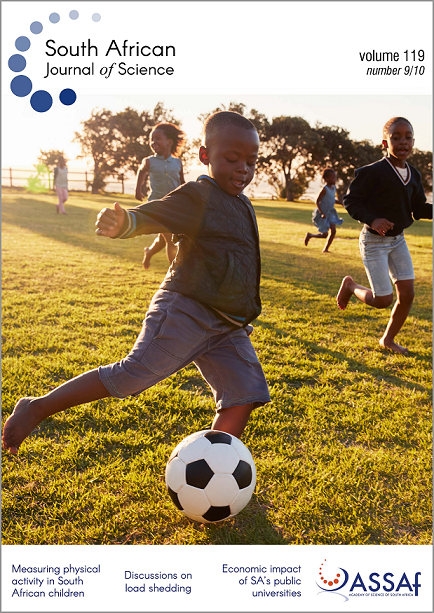An assessment of the economic impact of South Africa’s public universities
DOI:
https://doi.org/10.17159/sajs.2023/14851Keywords:
universities, economic impact, higher education, gross-value addedAbstract
With the understanding that universities play multiple social purposes, we aimed to provide an estimation of the economic impact of the public universities in South Africa. Using models described in the literature, we estimated economic benefits from four university activities – university exports, research at universities, the production of graduates and universities as business entities. Comparative analysis shows that, as an economic sector, Higher Education contributes more to South Africa’s gross value added than other economic sectors such as Wood and Wood Products, Textiles, Clothing and Leather Goods, or Paper and Paper Products. It is comparable to sectors such as Gold Mining, and Beverages and Tobacco. Taking into account a number of assumptions, which are explained in the text, for 2018 the total economic impact was estimated at about ZAR513 billion. Governmental expenditure on higher education in that year was ZAR66 billion. These figures produce a cost–benefit ratio for the sector of 1 : 7.7, considering only these four university activities.
Significance:
The South African public higher education institutions form a very significant economic sector within the national economy. In terms of the gross value added, it is very similar in size to the gold mining industry. Taking into account four activities of universities, this sector contributes about ZAR500 billion annually to the economy, which is likely to be an underestimate of the actual contribution. This finding opens the way for policymakers to understand the importance of the sector as an area of investment. Recognising the potential limitations of the use of the modelling developed for other economies, our study indicates the importance of further work to indigenise the economic modelling for local conditions.
Published
Issue
Section
License

All articles are published under a Creative Commons Attribution 4.0 International Licence
Copyright is retained by the authors. Readers are welcome to reproduce, share and adapt the content without permission provided the source is attributed.
Disclaimer: The publisher and editors accept no responsibility for statements made by the authors
How to Cite
- Abstract 1339
- PDF 1201
- EPUB 126
- XML 410












.png)